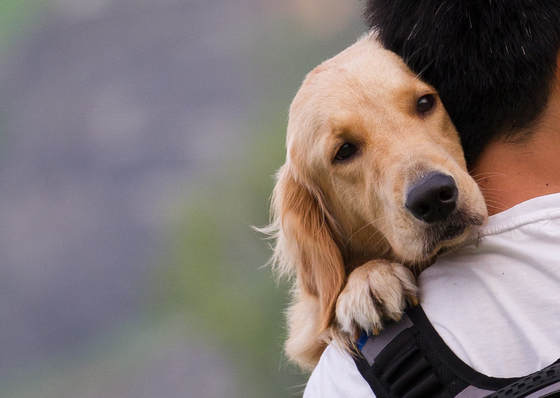Client Forms & Information to save you some time at the office
Helpful Tips for Pet Owners
11 Tips for Being a Responsible Pet Owner
- Make him part of the family. Pets, especially dogs, need companionship. They are traditionally pack creatures and need the warmth and love that comes with living indoors with their family.
- Pet Proof your house. To keep your pet healthy you should research what household products and foods can harm your pet. Make sure these are kept in secure locations so your pet cannot get into them.
- Care for your pet. Regular visits to the vet and groomer are absolutely necessary. Insuring your pet may also be important to your pet’s health. Emergencies can happen at any time. Ensure your pet gets the help he needs no matter the cost with pet insurance.
- Spay and neuter your pet. Studies have shown that pets that are spayed and neutered live healthier, longer lives. Plus, spayed a neutered pets are less likely to develop behavior problems.
- Always keep an ID tag on your pet. Consider getting your pet microchipped as well to help identify him if he is lost or stolen.
- Train your pet to understand obidience. Dogs should at least understand basic direction like “sit” and “stay.” In an emergency situation these cues could save your pet’s life.
- Give him the exercise he needs. All pets need regular exercise to stay fit and to release their energy. Without it, your pet will begin to act out. Young pets that do not get enough exercise are more likely to develop negative behavioral issues that lead many to give up their pet.
- Feed him properly. Ask your vet what type of food and how much is right for you pet. Keeping your pet on a regular, portion controlled diet will help with weight management and prevent weight related health problems.
- Socialize your pet. Meeting new people and other pets improves the confidence of your pet. Plus, having extra playmates will help relieve some of your pet’s built-up energy.
- Love your pet. You are your pet’s favorite thing in the whole world. He craves your love, attention and care. So show him the love and devotion he shows you!

Dogs in Hot Cars
Every year, dogs suffer and die when their guardians make the mistake of leaving them in a parked car—even for “just a minute”—while they run an errand. Parked cars are deathtraps for dogs: On a 78-degree day, the temperature inside a parked car can soar to 100 degrees in just minutes, and on a 90-degree day, the interior temperature can reach as high as 109 degrees in less than 10 minutes.
Animals can sustain brain damage or even die from heatstroke in just 15 minutes. Beating the heat is extra tough for dogs because they can only cool themselves by panting and by sweating through their paw pads.
Watch for heatstroke symptoms such as restlessness, excessive thirst, thick saliva, heavy panting, lethargy, lack of appetite, dark tongue, rapid heartbeat, fever, vomiting, bloody diarrhea, and lack of coordination. If a dog shows any of these symptoms, get him or her out of the heat, preferably into an air-conditioned vehicle, and then to a veterinarian immediately.
Provide water to drink, and if possible spray the dog with a garden hose or immerse him or her in a tub of cool (but not iced) water for up to two minutes in order to lower the body temperature gradually. You can also place the dog in front of an electric fan. Applying cool, wet towels to the groin area, stomach, chest, and paws can also help. Be careful not to use ice or cold water, and don’t over cool the animal.
Every year, dogs suffer and die when their guardians make the mistake of leaving them in a parked car—even for “just a minute”—while they run an errand. Parked cars are deathtraps for dogs: On a 78-degree day, the temperature inside a parked car can soar to 100 degrees in just minutes, and on a 90-degree day, the interior temperature can reach as high as 109 degrees in less than 10 minutes.
Animals can sustain brain damage or even die from heatstroke in just 15 minutes. Beating the heat is extra tough for dogs because they can only cool themselves by panting and by sweating through their paw pads.
Watch for heatstroke symptoms such as restlessness, excessive thirst, thick saliva, heavy panting, lethargy, lack of appetite, dark tongue, rapid heartbeat, fever, vomiting, bloody diarrhea, and lack of coordination. If a dog shows any of these symptoms, get him or her out of the heat, preferably into an air-conditioned vehicle, and then to a veterinarian immediately.
Provide water to drink, and if possible spray the dog with a garden hose or immerse him or her in a tub of cool (but not iced) water for up to two minutes in order to lower the body temperature gradually. You can also place the dog in front of an electric fan. Applying cool, wet towels to the groin area, stomach, chest, and paws can also help. Be careful not to use ice or cold water, and don’t over cool the animal.

Walking your Dog on Pavement on a Sunny Day
When walking your dog, keep in mind that if it feels hot enough to fry an egg outside, it probably is. When the air temperature is 86 degrees, the asphalt can reach a sizzling 135 degrees — more than hot enough to cook an egg in five minutes. And it can do the same to our canine companions’ sensitive foot pads.
On an 87-degree day, asphalt temperatures can reach 140 degrees, hot enough to cause burns, permanent damage and scarring after just one minute of contact. Rapid burns and blistering can occur at 150 degrees. Hot sidewalks, pavement and parking lots can not only burn paws, they also reflect heat onto dogs’ bodies , increasing their risk of deadly heatstroke.
If you wouldn’t put your dog in a frying pan, please don’t make him or her walk on hot pavement. Always test the pavement with your hand before setting out (too hot to touch is too hot for Spot), walk early in the morning or late at night when it’s cooler, carry water and take frequent breaks in shady spots and never make dogs wear muzzles that restrict their breathing.
When walking your dog, keep in mind that if it feels hot enough to fry an egg outside, it probably is. When the air temperature is 86 degrees, the asphalt can reach a sizzling 135 degrees — more than hot enough to cook an egg in five minutes. And it can do the same to our canine companions’ sensitive foot pads.
On an 87-degree day, asphalt temperatures can reach 140 degrees, hot enough to cause burns, permanent damage and scarring after just one minute of contact. Rapid burns and blistering can occur at 150 degrees. Hot sidewalks, pavement and parking lots can not only burn paws, they also reflect heat onto dogs’ bodies , increasing their risk of deadly heatstroke.
If you wouldn’t put your dog in a frying pan, please don’t make him or her walk on hot pavement. Always test the pavement with your hand before setting out (too hot to touch is too hot for Spot), walk early in the morning or late at night when it’s cooler, carry water and take frequent breaks in shady spots and never make dogs wear muzzles that restrict their breathing.
|
Information
4-1571 Kuhio Highway Kapaa, HI 96746 Phone: 808.822.9791 Text: 808.822.9791 Fax: 808.821.0991 |
Appointments Required
Call 808.822.9791 or Text 808.822.9791 |
Hours of Operation
Monday: 8:00am - 5:00pm Tuesday: 8:00am - 5:00pm Wednesday: 8:00am - 5:00pm Thursday: 8:00am - 5:00pm Friday: 8:00am - 5:00pm Saturday: 8:00am - 12:00 Noon Sunday: CLOSED * We are closed on Major Holidays * We do not see appointments between noon - 2:00pm * Emergency/After Hours available for CURRENT patients ONLY * Please call or text to schedule an appointment |
Site powered by Weebly. Managed by IDEXX Laboratories








